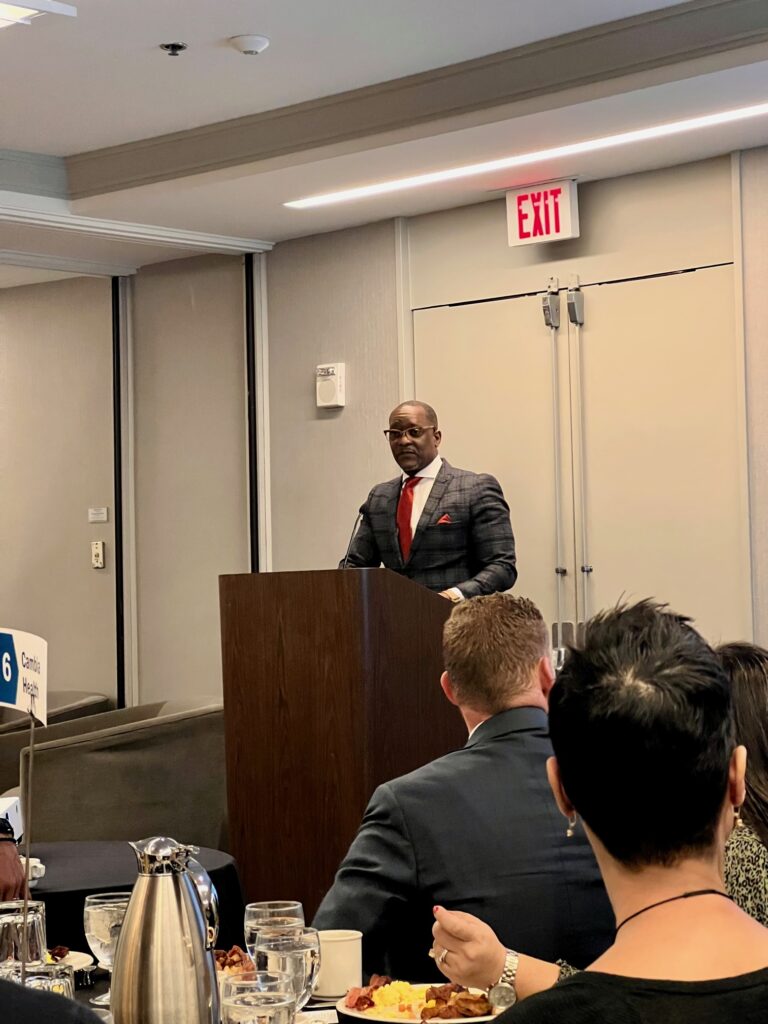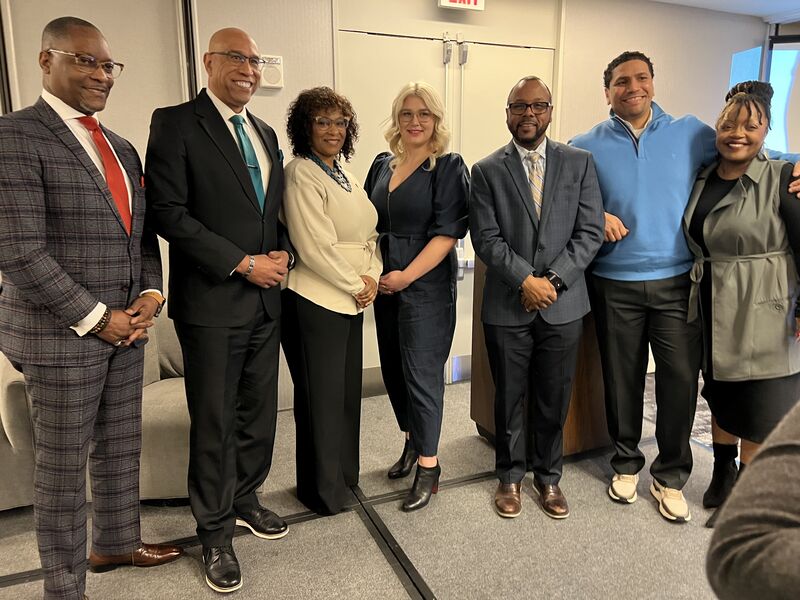
On March 9, 2022, I had the opportunity to present the First Annual State of Oregon’s Black Economy. The event was a part of the Portland Business Alliance’s “Breakfast Forums” series sponsored by Alaska Airlines, the Portland Tribune, and U.S. Bank. The purpose of my address was to share the work the Black Business Association of Oregon has done to fulfill the objectives of the Black Economic Prosperity Agenda (BEPA), which are:
- Develop a Regional Black Economic Dashboard
- Develop a Regional Strategic Plan for Black Economic Prosperity
- Establish a New Role and Potential Organization to do the work, including a Regional Center for Black Economic Advancement
The forum also featured a panel of speakers discussing the importance of the BEPA and the BBAO, why equity is necessary, and how uplifting Black-owned businesses and Black residents is integral to Oregon’s overall economy.

Leading up to my presentation, I took the opportunity to scan the room. I was elated to see the diverse audience, which consisted of people from the government, the private sector, non-profit organizations, educational institutions, religious organizations, and other ethnic communities. Seeing so many people representing the different factions of our society in attendance gave me hope that the future for Black businesses and residents in Oregon can be brighter than ever.
Bringing true equity to Black Oregonians requires a team effort, and to be an effective team player, everyone must have a clear understanding of sustainable equity. To provide clarity, it is essential to dissect and understand the meaning of “equity” and “sustainable” as they relate to Black economic prosperity.
The simple definition of “equity” is everyone having what they need to live a comfortable and prosperous life. However, the word is also used to acknowledge that for Black Oregonians, fairness and justice were not available to us from the start of our tenure in this state, and it is time to solve that conundrum. The simple definition of “sustainable” is something long-term that will stay in place to achieve and maintain a desired result.
Therefore, sustainable equity is the acknowledgment and acceptance by everyone in Oregon that Black businesses and Black residents have been denied equity for far too long, and it is going to take a long-term plan not just to bring about equity but to maintain an improved level of equity for the future generations of Black Oregonians.
As we work to bring equity that is sustainable to Black Oregonians, I am optimistic that the team that is evolving will acknowledge that the time is right to commit themselves to a long-term agenda that is long overdue. While the BEPA aims to improve the economic status of Oregon’s Black population, it will take all of us to bring the plan to fruition and maintain it going forward.
Lance J. Randall, Executive Director